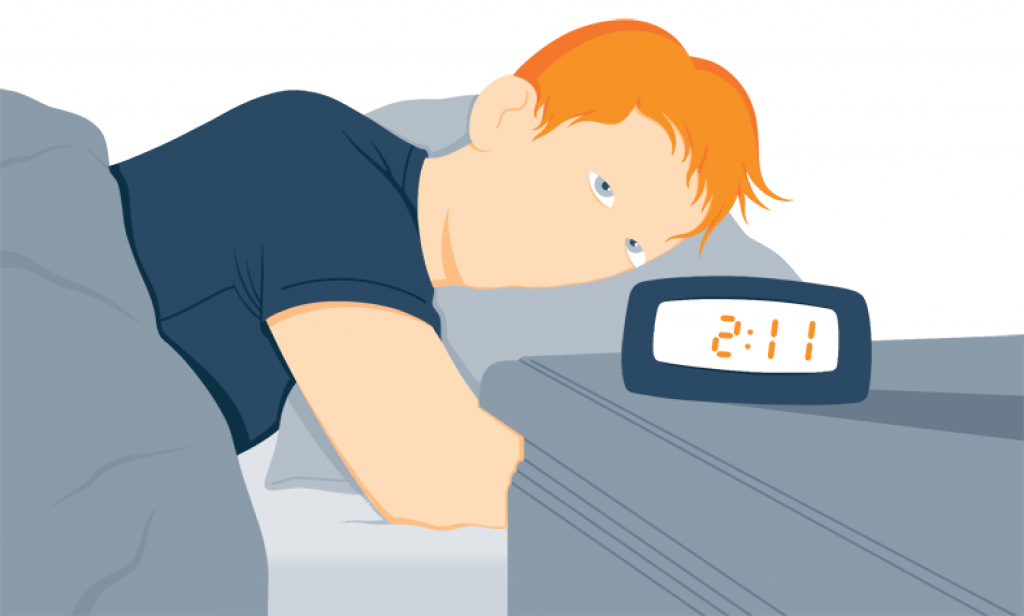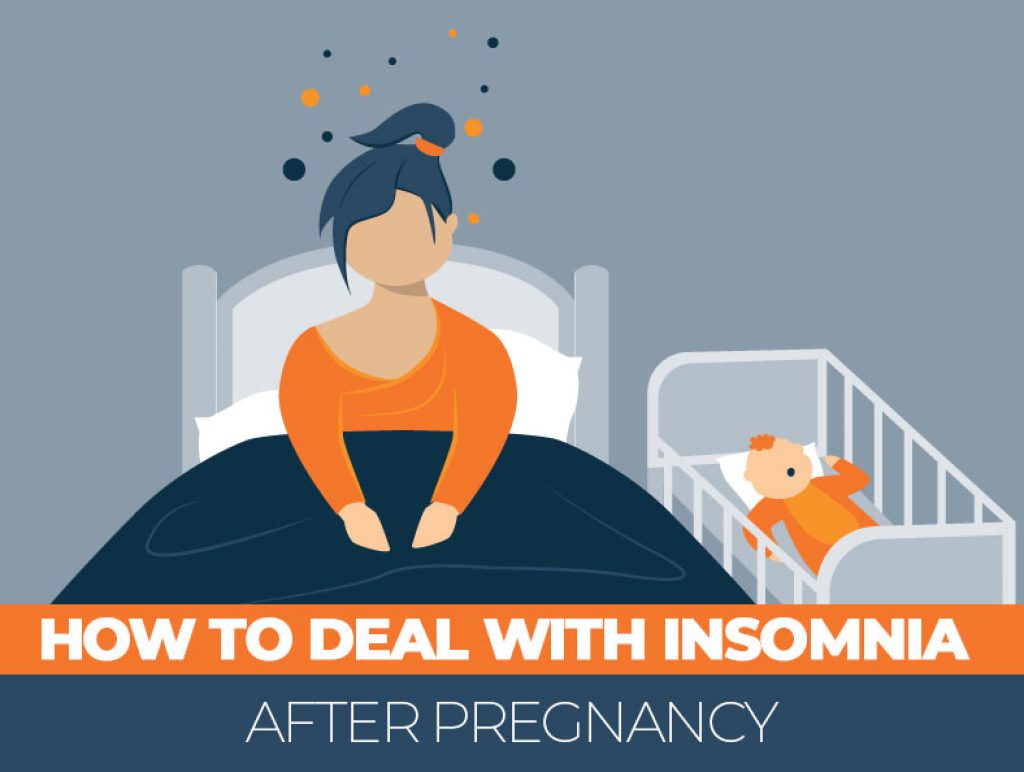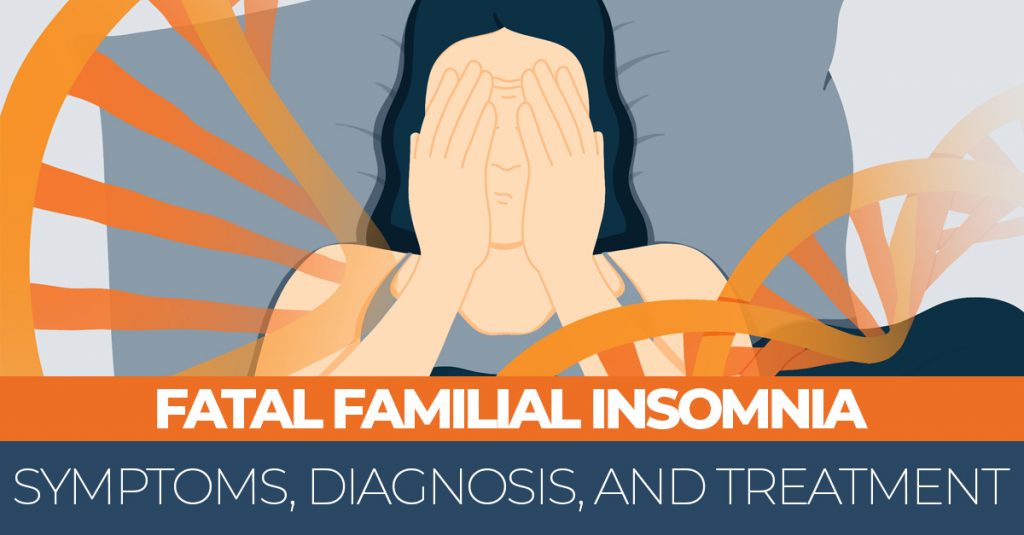Insomnia is a sleep disorder in which an individual has trouble falling or staying asleep, resulting in poor sleep quality and duration. Insomnia is one of the most common sleep disorders, affecting as many as 70 million American adults each year, according to Cleveland Clinic. Insomnia can be caused by different factors, such as stress, lifestyle habits, irregular sleep schedules, mental health issues, pain, illness, medications, neurological problems, and other sleep disorders.
There are two types of insomnia, acute and chronic. Acute insomnia is a short-term condition where the individual has trouble sleeping for a few days or weeks. Stress is a common cause of short-term insomnia. The other type of insomnia is chronic. Chronic insomnia is when a person experiences this disorder for a longer period.
Chronic insomnia usually occurs at least three times a week and will continue for three months or longer. Signs of insomnia include difficulty falling asleep, waking up in the middle of the night, trouble falling back asleep, and waking up too early. Insomnia symptoms include daytime fatigue, irritability, depression, impaired memory, and difficulty concentrating.
What is Insomnia?
Insomnia is a sleep disorder characterized by difficulty falling or staying asleep. Insomnia is considered one of the most common sleep disorders. The Cleveland Clinic reports that 70 million U.S. adults experience insomnia every year.
Stress, lifestyle habits, irregular sleep schedules, mental health issues, pain, illness, medications, neurological problems, and other sleep disorders can cause insomnia. This disorder negatively impacts sleep quality and duration, leading to poor physical, cognitive, and mental health outcomes.
What Types of Insomnia are There?
There are two types of insomnia, acute and chronic. We list these insomnia types in detail below.
- Acute Insomnia: Acute insomnia is a short-term form of this sleep disorder in which a person experiences sleep troubles for a few days or weeks. Experts say stressful events can be a common cause of acute insomnia. These stressful events may include a health diagnosis, major personal or professional changes, or the loss of a loved one. This form of insomnia is more prevalent than chronic insomnia. Acute insomnia may go away on its own, but sometimes it can become long-term.
- Chronic Insomnia: Chronic insomnia is when a person experiences difficulty sleeping for an extended period. Chronic insomnia often occurs at least three days a week for three months or longer. Stress, lifestyle habits, irregular sleep schedules, mental health issues, pain, illness, medications, neurological problems, and other sleep disorders can cause long-term insomnia. Lifestyle changes, sleep medications, and behavioral therapies are ways to manage long-term insomnia.
What does Fatal Familial Insomnia mean?
Fatal Familial Insomnia (FFI) is a rare genetic neurological disorder that causes chronic insomnia. FFI typically starts mild but eventually becomes worse, resulting in death. Fatal Familial Insomnia is different from traditional insomnia in several ways.
First, FFI is an inherited disorder. Research has found that some people may be genetically predisposed to developing insomnia, but there is no evidence that it’s directly inherited like FFI. Second, Fatal Familial Insomnia is a direct cause of death in patients. Insomnia can cause long-term health issues that could be fatal later, but it is not directly linked to mortality.
What are the Causes of Insomnia?
The causes of insomnia include stress, lifestyle habits, irregular sleep schedules, mental health issues, pain, illness, medications, neurological problems, and other sleep disorders. We list these causes in detail below.
- Stress: Stress is a common cause of insomnia. Examples of stressful experiences and events that may lead to insomnia include a severe health diagnosis, work commitments, relationship problems, moving, or the death of a loved one. Exercise, meditation, and warm baths are several ways to help relieve stress and improve insomnia symptoms.
- Lifestyle Habits: Poor lifestyle habits can cause insomnia. Examples of lifestyle habits that can negatively affect sleep include using electronic devices right before bed, smoking, consuming excess alcohol and caffeine, eating late at night, and not getting enough exercise. Cutting back on these bad habits should improve insomnia symptoms.
- Irregular Sleep Schedules: Irregular sleep schedules can cause insomnia. An irregular sleep schedule means you are going to bed and waking up at different times throughout the week, throwing off your body’s internal clock. Keeping a consistent schedule every day of the week should improve insomnia symptoms.
- Mental Health Issues: Mental health issues can lead to insomnia. Examples of common mental health issues that impact sleep are depression and anxiety. Negative or worrisome thoughts can make it harder to fall asleep at night. Seeking professional mental healthcare treatment should help alleviate insomnia.
- Pain: Pain can cause insomnia because the discomfort can keep you up all hours of the night. Pain may result from injuries, aging, a poor mattress, or specific health conditions. If your pain is due to an injury or health condition, speak to a doctor who may be able to help improve your symptoms. If your pain is due to age or a poor mattress, you should invest in a bed that will provide optimal pressure relief and support. Pressure relief will help alleviate pain in pressure points, while quality support will prevent pain from worsening, particularly in the back.
- Illness: Illnesses can cause insomnia. If you are sick, your symptoms could make it harder to doze off. A persistent cough, sore throat, and nasal congestion are examples of common illness symptoms that could lead to nighttime insomnia. If your illness is a temporary cold or the flu, over-the-counter nighttime medications should reduce symptoms, helping you fall asleep. If your illness is a long-term condition, speak with your doctor about ways to help you sleep better.
- Medications: Certain medications can lead to sleep troubles. Examples of medicines linked to insomnia include antidepressants, ADHD treatments, decongestants, and beta-blockers. If you take a drug that’s impacting how well you sleep, you should speak to your physician, who may suggest an alternative option.
- Neurological Problems: Neurological problems can cause insomnia. Some neurological disorders linked to sleep problems include central sleep apnea, circadian rhythm disorders, fatal familial insomnia, parasomnias, REM sleep behavior disorder, and epilepsy. If you have a neurological condition impacting your sleep, consult your doctor or a sleep specialist to find an appropriate treatment to help you rest better.
A mattress may also help or worsen insomnia. If your bed is not comfortable or supportive, this could make it harder for you to sleep well. You should find a mattress that complements you and your sleep style. You need to consider factors such as your sleep position, preferences, comfort needs, and body type. Explore our top picks for the best mattresses for insomnia to find a mattress that might improve your sleep quality.
Can COVID Cause Insomnia?
Yes, Covid can cause insomnia. Experts have described the link between Covid and insomnia as ‘Coronasomnia’. The coronavirus pandemic has caused a lot of psychological distress that has also negatively impacted people’s sleep. The worrisome thoughts may include the virus itself and the uncertainty of the pandemic.
While some Covid-19 patients may report sleep problems, the Centers for Disease Control and Prevention has not listed insomnia as a Covid symptom. A study titled COVID-19 Illness in Relation to Sleep and Burnout found that insomnia was linked to a higher risk of contracting Covid. The reason for this is that insufficient rest weakens the immune system, making you more susceptible to diseases.
What is the Effect of Mattress Quality on Insomnia?
Mattress quality can affect insomnia and other sleep disorders by either improving or worsening symptoms. If you are resting on an uncomfortable mattress, this could keep you up at night. People experiencing pain from arthritis can get relief from a mattress with good pressure relieving materials like memory foam. Those with back issues should benefit from a highly-supportive bed that keeps the spine in good alignment.
When you invest in a new mattress for good sleep, you’ll need to consider factors like your sleep position, preferences, comfort needs, and body type. Sleeping on a high-quality bed should feel more comfortable, which could reduce insomnia symptoms.
Who is most at risk for Insomnia?
The people most at risk for insomnia are women, those over 60, individuals with mental health conditions, people experiencing a lot of stress, and folks with irregular sleep schedules. We will detail these risk groups below.
- Women: Women are more likely to experience insomnia because of hormonal changes during menstruation and menopause. The menstrual cycle can affect a woman’s internal clock. Researchers from a 2013 study titled Sleep and Women’s Health say that menstruating women report worse sleep quality in the week before their period. Menopause can cause uncomfortable hot flashes and night sweats that may affect rest. Women who are pregnant may also develop insomnia. Some pregnancy symptoms that can keep women up at night include discomfort from the growing belly, more frequent bathroom trips, gastroesophageal reflux disease (GERD), and restless legs syndrome (RLS).
- People Over 60: People age 60 and older are at a higher risk for insomnia because the likelihood of developing sleep issues increases with age. Older people experience significant changes to their sleep architecture, such as longer sleep latency, shorter sleep duration, less slow-wave or deep sleep, and more fragmented rest. The elderly are also more likely to have health issues that could make it harder to sleep soundly.
- Individuals with Mental Health Issues: People with mental health issues are more at risk for insomnia. Common mental health problems associated with insomnia are depression and anxiety. The negative emotions and thoughts brought about by these conditions can make it tough to relax and doze off.
- People Under Stress: People under stress are at an increased risk for insomnia. Stress can impair your ability to relax enough to fall asleep. Stressful situations and events are often linked to sleep troubles. Examples of stressful scenarios that could lead to insomnia include losing a loved one, work demands, moving to a new city, or receiving a severe health diagnosis.
- People With Irregular Sleep Schedules: People with irregular sleep schedules are more likely to experience insomnia. An inconsistent sleep schedule can throw off your body’s internal clock. Shift workers are a high-risk group for insomnia because they frequently keep an irregular schedule due to their work demands.
Is Insomnia common during Pregnancy?
Yes, insomnia is common during pregnancy. The American Pregnancy Association reports that about 78 percent of pregnant women experience insomnia. Insomnia symptoms are more likely to occur during the first and third trimesters.
The causes of insomnia during pregnancy include discomfort, heartburn, urinating more often, anxiety, intense dreams, hormonal changes, and restless legs syndrome (RLS). Pregnancy and insomnia may be linked, but there are ways to help. Expectant mothers can adjust sleep positions, find ways to relax before bed, make the bedroom as comfortable as possible, and exercise during the day.
What’s the relationship between Insomnia and Aging?
The relationship between insomnia and aging is that the older you get, the greater your chances are of developing insomnia. There are several reasons for this.
First, older people’s sleep architecture undergoes changes that include longer sleep latency, decreased sleep duration, less deep sleep, and more disturbed rest. Older individuals are also more likely to have health complications that affect their rest.
What are the Symptoms and Signs of Insomnia?
The symptoms and signs of insomnia are trouble falling asleep, waking up during the night, the inability to fall back asleep, waking up too early, daytime fatigue, irritability, depression, impaired memory, and difficulty concentrating. We list these symptoms and signs in detail below.
- Difficulty Falling Asleep: Difficulty falling asleep is a sign of insomnia. If you cannot doze off, try doing something that will help you relax, such as listening to soft music, reading a book, or taking a warm bath.
- Waking Up During the Night: Waking up during the night is a sign of insomnia. Avoid looking at your phone and getting out of bed if you wake up. Doing these things could cause you to feel more awake.
- Trouble Falling Back Asleep: Trouble falling back asleep is a sign of insomnia. Sometimes when you wake up during the night, you may struggle to fall back asleep. Rather than lying in bed awake for hours, try to do something that will help you relax again to have a better chance of sleeping.
- Waking Up Too Early: Waking up too early is a sign of insomnia. People with insomnia may wake up earlier than they’re supposed to, which can affect their sleep duration. If you wake up earlier than expected and don’t feel well-rested, try to sleep in longer to get as much shuteye as possible.
- Daytime Fatigue: Daytime fatigue is a symptom of insomnia. When you have insomnia, you often become sleep-deprived, which can cause you to feel tired during the day. A short nap may help with daytime fatigue, but naps should be under 30 minutes and not too late in the day. A longer nap or one that’s later could make it harder to fall asleep at night.
- Irritability: Irritability is a symptom of insomnia. Insomnia can lead to sleep deprivation, and when you don’t get sufficient rest, you are more likely to exhibit negative moods like irritability. Negative behaviors could adversely affect your personal and professional relationships.
- Depression: Depression is a symptom of insomnia. Depression is a mental health disorder that negatively affects how you feel and act. Johns Hopkins Medicine reports that people with insomnia are ten times more likely to develop depression.
- Impaired Memory: Impaired memory is a symptom of insomnia. When you don’t get enough good rest, your memory could suffer. Sleep is important for memory consolidation, so when you are sleep-deprived from insomnia, you may notice you have trouble remembering things. Research has also shown a link between chronic sleep loss and an increased risk for memory problems such as Alzheimer’s disease.
- Trouble Concentrating: Trouble concentrating is a symptom of insomnia. The sleep deprivation that comes with insomnia can make it harder to focus during the day. Difficulty concentrating could lead to poor academic or work performance and increase your risk for accidents.
What are the Statistics about Insomnia?
The statistics about insomnia reveal that this is the most prevalent sleep disorder. The Cleveland Clinic reports that 70 million U.S. adults experience insomnia every year. Acute insomnia is more common than chronic insomnia.
The American Sleep Association says that 30 percent of people report short-term insomnia, and 10 percent report long-term insomnia. The people most at risk for this disorder are women, the elderly, individuals with mental health conditions, those under stress, and people with irregular sleep schedules.
What are the Statistics about Insomnia in Children?
The statistics about insomnia in children reveal that 50 percent of kids will develop a sleep disorder. Even if the condition is not insomnia, another sleep disorder could trigger insomnia. The American Academy of Pediatrics reports that behavioral insomnia is common in children. Behavioral insomnia is when a child develops a learned behavior that causes sleep problems. Medical conditions, pain, medications, lack of a routine, and attention-seeking are some of the ways a child may develop behavioral insomnia.
What are the Risks and Complications of Insomnia?
The risks and complications of insomnia include worse job or school performance, increased risk for accidents, bad personal and professional relationships, long-term health problems, and less physical energy.
- Worse Job or School Performance: Insomnia can diminish job or school performance. A lack of sleep can impair your ability to learn new information, make it harder to concentrate, and elevate your risk of errors. These factors can cause you to do worse in your academic or professional career.
- Higher Risk for Accidents: Sleep deprivation associated with insomnia can cause you to feel tired during the day, increasing the risk of motor vehicle accidents. The National Highway Traffic Safety Administration reports 697 drowsy-driving deaths in 2019.
- Bad Personal and Professional Relationships: Insomnia can cause you to exhibit more negative moods, which may harm your personal and professional relationships. Insomnia in kids could impair their social skills with peers as well.
- Long-Term Health Problems: Chronic insomnia can lead to long-term health problems. Long-term complications associated with insomnia include hypertension, heart attacks, strokes, obesity, and diabetes.
- Less Physical Energy: Not getting enough rest due to insomnia can reduce physical energy during the day. Less energy may mean you avoid working out or attending social outings with friends or family.
Drowsy Driving Survey
What are the Prevention Methods of Insomnia?
The prevention methods of insomnia include a consistent sleep schedule, having a comfortable bedroom and mattress, practicing healthy habits, and treating other health issues. A regular sleep schedule should help with insomnia because it’ll set your internal clock. Plan a bedtime and wake-up time that’s convenient for you and maintain that schedule every day.
A comfortable bedroom and mattress can improve insomnia symptoms. A cool, dark, and quiet room is ideal for good rest. Your bed should fit your individual needs, which may include important features like good support, cooling, pressure relief, or motion isolation. Healthier lifestyle habits should alleviate insomnia. Examples of good practices for better rest include regular exercise, establishing a relaxing nightly routine, avoiding caffeine and alcohol, not eating big meals late at night, and cutting off the use of your electronic devices before bed.
Lastly, treating underlying health complications is crucial for dealing with insomnia. If a chronic medical condition or other sleep disorder affects your sleep, you should speak with your physician or a sleep specialist. They can help set up an appropriate treatment plan to help you.
How can Doctors Diagnose Insomnia?
Doctors can diagnose insomnia in three ways. The first is a physical exam in which the doctor will look for physical problems that may be causing your insomnia. The second is a question and answer assessment of your sleeping habits. The third way is to set up a sleep study. During a sleep study, you are hooked up to machines that monitor your body’s activity while you sleep.
A specialist will look at your brain waves, breathing, heartbeat, eye movements and body movements. Sleep studies help determine if you have another sleep disorder causing insomnia.
What is an Insomnia Test?
There is no insomnia test. A doctor may use three methods to determine whether you have insomnia. These methods include a physical exam, asking you about your sleep habits, and undergoing a sleep study. The formal names for the sleep study are a polysomnogram test or polysomnography.
What are the Medical Treatments of Insomnia?
The medical treatments of insomnia include prescription sleeping pills and over the counter sleep aids.
- Prescription Sleeping Pills: Prescription sleeping pills are stronger medications to help treat insomnia. A medical doctor prescribes these pills. Different types of prescription sleeping pills include Eszopiclone, Ramelteon, Zaleplon, and Zolpidem. Side effects of prescription pills for sleep include daytime drowsiness and an increased risk for falls. Health experts suggest you only use these pills for several weeks.
- Over the Counter Aids: You can purchase over the counter sleep aids at your local pharmacy without a doctor’s prescription. Many sleep aids contain antihistamines that may cause daytime drowsiness, dizzy spells, confusion, impaired cognitive abilities, and trouble urinating. These aids are intended for short-term use to improve insomnia symptoms.
What are the Alternative Treatments of Insomnia?
The alternative treatments for insomnia include cognitive behavioral therapy (CBT), melatonin supplements, and chamomile tea. We list these in detail below.
- Cognitive Behavioral Therapy (CBT): Cognitive behavioral therapy is a psychological treatment that focuses on changing thinking patterns to help the patient overcome an issue. CBT can be used for insomnia, depression, anxiety, substance abuse, marital problems, eating disorders, and severe mental illness.
- Melatonin: Melatonin is a well-known natural sleep aid. Melatonin is a natural hormone that functions as part of the body’s circadian rhythm for sleep, and its main influence is light. When it’s dark out, the body releases extra melatonin to foster sleepiness. Melatonin supplements are designed to support the body’s natural process by increasing the amount of melatonin in the body to promote tiredness.
- Chamomile Tea: Chamomile tea is a popular alternative sleep aid. Chamomile tea is made from the chamomile plant, which is considered to have sedative effects. Research is mixed on whether chamomile makes people sleepy, but the relaxing effects of drinking warm tea at night may still help with insomnia.
What are the Differences between Insomnia and Sleep Deprivation?
The difference between insomnia and sleep deprivation is that insomnia is a sleep disorder in which a person has trouble falling and staying asleep, even if they give themselves enough time for rest. Sleep deprivation typically happens when you don’t schedule adequate time for rest. Sleep deprivation is a side effect of insomnia because this disorder prevents someone from sleeping enough.
Sleep deprivation and insomnia are usually connected because the first is a byproduct of the latter. Individuals with insomnia will often experience symptoms of sleep deprivation, such as trouble focusing, daytime tiredness, and irritability.
Insomnia & Sleep
Bonus Articles

Jill Zwarensteyn
Editor
About Author
Jill Zwarensteyn is the Editor for Sleep Advisor and a Certified Sleep Science Coach. She is enthusiastic about providing helpful and engaging information on all things sleep and wellness.
Combination Sleeper



